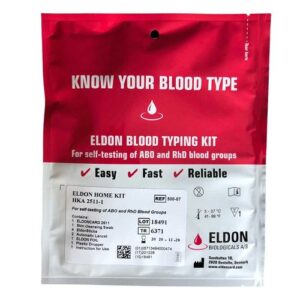Type O positive blood is one of the most common blood types across the world. This is the universal donor blood type since it can be given to everybody who has a compatible blood type, so it becomes very valuable in times of emergency or when transfusions have to be conducted quickly.
This makes O positive the most common blood type in the UK, accounting for about 35% of the population falling into this blood group—1 in every 3 Brits. The blood type is similarly very common in many other countries all over the world.
Among the major advantages of having O positive blood, a very few cases of blood type incompatibility reactions after transfusions are experienced by individuals. However, this blood type shows higher chances of developing ulcers and other digestive tract-related disorders.
Health Implications of O Positive Blood
Studies show that people with O positive blood type may have a lower risk for heart diseases than the remaining blood groups. This is because people with this blood type have lower levels of the von Willebrand factor, a protein that can facilitate blood clotting and raise the risk of heart diseases.
Then, those with O positive blood could simply have a stronger immune system than most. It has been concluded that they have higher IgG antibodies, which recognise and act on foreign material in the body. This may be the reason why people with O positive blood have less of a chance at catching certain infections, like hepatitis B.
On the contrary, persons having O positive blood are susceptible to some diseases like malaria and cholera. The individuals may also be highly exposed to pancreatic cancer and stomach ulcers.
Conclusion: O positive blood is the most common blood type in the whole world and is highly valued in emergency cases since it can be given to any person with compatible blood. While there are some health risks related to having O positive blood, there are some potential health advantages also that one should consider. Knowing one’s blood type is very essential, so that in times of emergencies, a person can let the concerned medical personnel know.
Recent Events Highlight Importance of O Positive Blood
The important role played by O positive blood was highlighted in June 2024 when major hospitals in London were under cyber-attack. A ransomware assault—purportedly by a Russian cybercriminal group—affected the standard process of matching blood in a number of health institutions. This prompted the NHS Blood and Transplant to make an urgent appeal for blood-type O donors, specifically O positive and O negative.
The cyber-attack brought to light the importance of O-type blood in emergency situations. Since O positive blood can be safely administered to any patient with a plus blood type, this would account for some 76% of the population, so it became a key factor that facilitated the hospitals in continuous surgery and taking care through the disruption of their usual systems of blood typing.
This event stands as a reminder that blood donations are needed on a continual basis, particularly from those with O blood types. According to Dr. Gail Miflin, Chief Medical Officer at NHS Blood and Transplant, the need now is more imperative than ever for O type blood donors to come forward to support patient care throughout this crisis.
This is just one of those incidents that show what O positive blood carriers can do to save others. What regular donations will do is ensure a stable supply of blood in the system—critical for the day-to-day needs of medical interventions, but also necessary to respond to sudden emergencies or system disruptions.
What enables security for the systems of medical appliances and the resilience of our blood supply is inextricably linked as we press on in this ever increasingly digital landscape of healthcare. Understanding your blood type and, if you are O positive, taking time to consider making a regular donation can play a critical role in supporting the health-care system’s ability to respond to routine and extraordinary circumstances alike.
Knowing Your Blood Type
There are a few ways to learn your blood type. Knowing your blood type is very important because it avoids the risk of getting an incompatible blood group at the time of transfusion. If blood types are mismatched, blood cell clumping occurs, which may be dangerous.
If you don’t know your blood type, you can contact your local doctor or the blood donation people in your area to ask and see if they can tell you. NB: Your doctor might refuse to take some of your blood if there is no medical reason to do so.
Most easily, you can know your blood type by doing an at-home test. We suggest doing so with the eldon blood typing kit. Besides this really low-cost kit, the product also gives results in minutes. You can take the test at home right when the Zoom Health package arrives in your mailbox, not days or even weeks after waiting on a doctor’s appointment!
Photo “Blood Donor” by Anthony Cunningham for Zoom Health
Zoom Health is a leading UK supplier of Home Health Tests and Earplugs
This post was originally published in April 2022. It was last updated in August 2024.






